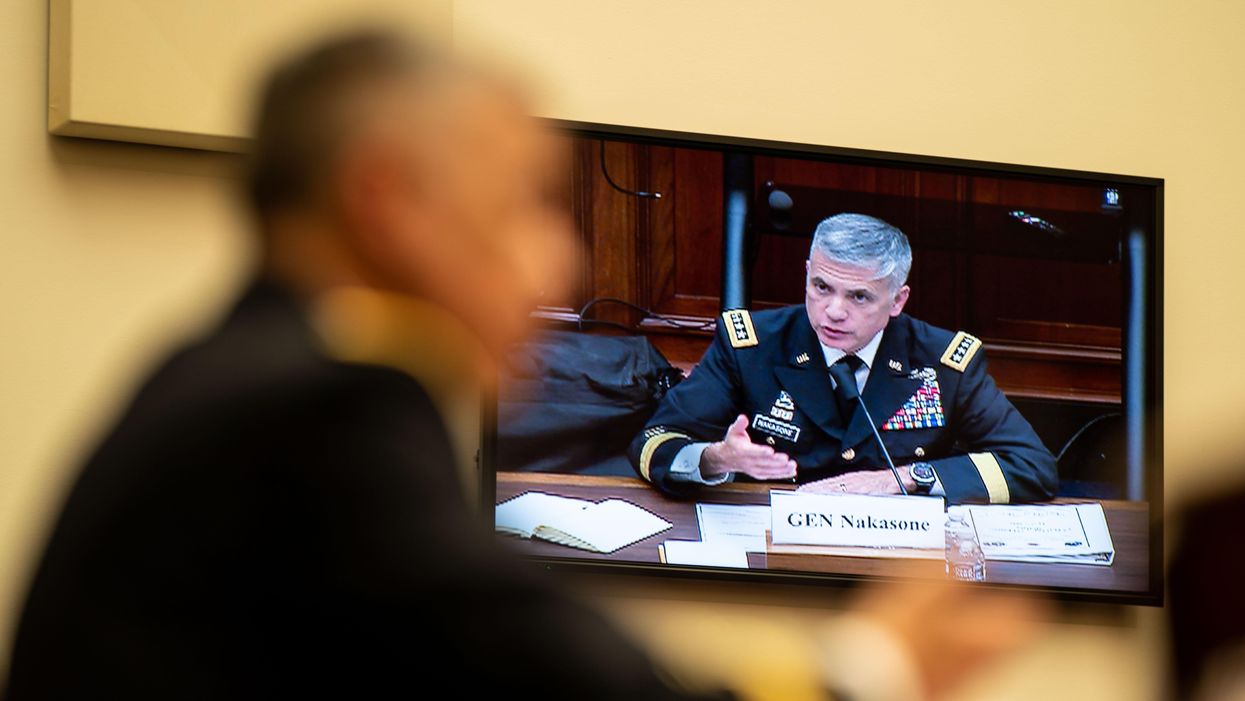Kornberg is lead author of the Global Parliamentary Report, scheduled for publication in early 2022, and is writing a book on the U.S. Congress.
In September, American public trust in government stood at 24 percent, a near all-time low. One potential cause for our lack of trust in government is a feeling among citizens that they are not heard. A new study found that only 28 percent of Americans think their representatives pay attention to the general public's views on issues. Another research initiative found that most constituents do not feel heard by their representatives. In order to remedy ailing trust, Congress should institute more systematic and more direct ways of hearing from average Americans.
The crisis facing American democracy is not unique. According to a recent study, over half of citizens living in democracies think their voices are "rarely" or "never" heard and believe they do not have an impact on political decisions.
Congress can learn from how countries around the world are developing solutions.
A forthcoming study of 80 countries around the world, jointly commissioned by the United Nations Development Program and the Inter-Parliamentary Union, points to straightforward solutions. The Global Parliamentary Report draws on a rich dataset of interviews with 140 parliamentarians and staff around the world, focus groups, surveys of 70 parliaments, and input from civil society actors. Among many other lessons, the research reveals the importance of consistent codified methods for engaging citizens outside the halls of the legislature in order to regain public trust.
Moving democracy outside the halls of parliament can increase the reach of parliamentary engagement with citizens. The U.S. Congress normally hears from the American people in congressional hearings. Committees in this large country do not cover the cost of travel, and structural inequities influence who has the financial, physical and other resources necessary to travel to Washington, D.C. Moreover, the personal and professional networks of congressional staff and members of Congress create bias and congressional witnesses may not represent the full spectrum of American perspectives.
The Global Parliamentary Report presents examples of parliaments institutionalizing engagement outside of parliament in order to increase how many and which citizens legislators hear. In the United Kingdom, the select committee engagement team helps parliamentary committees put together engagement events beyond formal evidence sessions. There are about 40 events a year, reaching about 52,500 people. Sixty percent of events are held outside of Parliament. Tara-Jane Kerpens-Lee, manager of the select committee engagement team, explained, "We support committees to hear from the people that they want to hear from but can't always do that through the formal evidence channels."
In Serbia, regular "mobile committee hearings" bring parliamentarians to remote regions of the country. In one example, committee MPs and staff traveled to a remote region following extensive floods in 2014. They heard from about 30 citizens about the need for agricultural insurance. As a result of the hearing the committee voted unanimously against budget cuts. A member of the Serbian Agricultural Procedures Association explained that before these mobile hearings "the main problem was the lack of communication with the committee. ... In earlier years they were virtually impossible to reach ... so how would a peasant be able to enter the Assembly? It's a major relief for farmers when they were able to present their problems." His words illustrate the way in which taking parliament to the people increases the range of voices that legislators can hear.
In the wake of Covid-19, many parliaments are moving engagement online. In Brazil, interactive events allow for public participation in public hearings through toll-free calls and online questions and comments. As of November 2020, over 10 million users had registered more than 24 million opinions on 9,727 propositions. Sen. Zenaide Maia explained that digital tools are "really important because people can participate all the time ... not only voting during the campaigns." Regular online engagement presents another channel for engaging those outside of the capital.
If Congress were to hear from more and more diverse groups of people, Americans might begin feeling that policymakers are listening. Evaluations of events put on by the U.K. select committee engagement team show that 65 percent of participants feel heard by committees, and 60 percent feel positive that their views will go on to inform policy. Personal interactions with politicians also increase their relatability. The chairwoman of Subotica City Association for People with Autism Disabilities, an organization visited by the Serbian mobile committee, reflected "only then [after the hearing] I realized that[MPs] are people just like us. We just need to present them the problems we are coping with."
Congress has already experimented with digital hearings in the wake of Covid-19 and on occasion different committees hold field hearings and listening tours. In addition, individual members of Congress hold town halls in their districts. However, what is missing is a systematic and consistent method of engaging citizens across the country. By institutionalizing field hearings as standard practice for committees, creating a dedicated office within Congress to support engagement work, and incorporating digital methods that enable long distance participation in all hearings, Congress can regain trust by showing its citizens that it hears all Americans.



















Trump & Hegseth gave Mark Kelly a huge 2028 gift